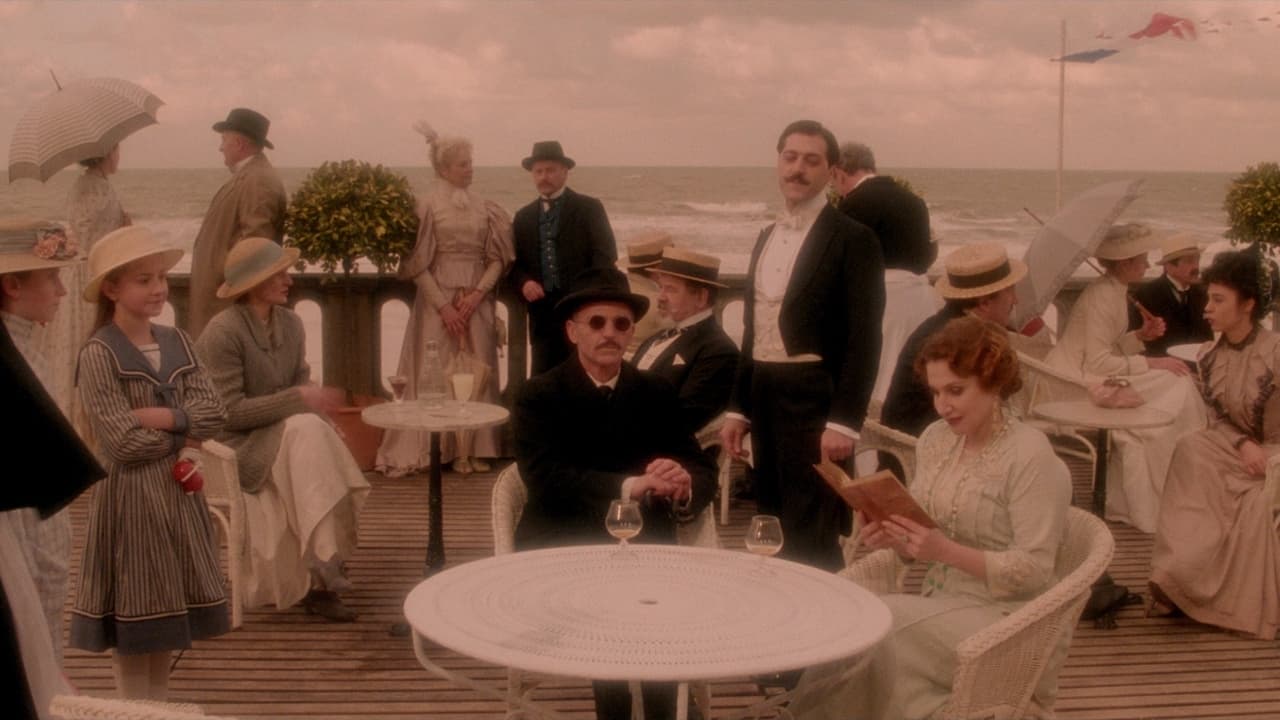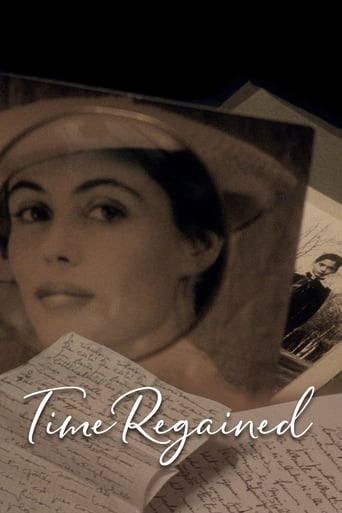

Ruiz was quite something back in the 80's, one of the most promising filmmakers I have recently discovered. He made films that throbbed with magic volition, with steps travelling inwards to the place where images are born. It was a dangerous cinema, sultry with the impossible.Then came the second phase, the period of maturity as it were. More prestigious films starting in the mid-90's, starring actors of standing (Mastroyanni, Huppert, here Deneuve and Malkovich) and with some clout of respectability. Watching these makes me cherish so much more the spontaneous upheaval of Three Crowns or City of Pirates.So, this is the landmark film of that second phase, a bulky, sprawling film about French writer Marcel Proust and his work. About sprawling deathbed recollections of a life lived, arranged into a story about stories in an attempt to reveal something of their machinations (and ours in weaving them in the mind, before or after the event).It is a noble effort, with multiple points of interest.Oh the sets are sumptuous, roomfuls of an impeccably dressed society at the doorstep of disaster—WWI is booming away in close proximity—who mingle in coquetry at the clinking sounds of fine glassware. Vice as the last means of sating a self that can never seem to please itself. Bunuel stuff.Charmingly amusing tidbits abound, sure—a scene at the funeral, for example, of a decorated general, whose wife takes solace in a stash of letters she discovered written by the deceased brave. We know, of course, that the love pouring out of them was no doubt intended for his secret homosexual lover.Now all of this as memory, with the narrator present and included in the scene of it. And then a camera—the internal narrator of memory—that introduces the distorted distance of time, this is quite marvelous, as actually reordering reality—furniture move around on whims, our narrator. Fine stuff so far.But, this really falls with Proust's ideas on the role of fiction, the thinking man so hopelessly removed from the actual, tangible things of life, that he can only find solace in turning them to their spiritual equivalents. Who instead of loving, can only write about love; who wastes the manifold possibilities of 'now!' in tinkering with dead time.Earlier filmmakers astutely exposed this destructive facet for what it is; a chimera of the mind that traps the soul in old films of memory. Resnais in his fascinating overall project about memory, Antonioni in Blowup, earlier yet it was film noir. Beckett has captured the dissication better than anyone, pungent stuff his. Ruiz by contrast romances the idea as though it was a pleasant stroll. He romances it so earnestly that it drains his entire film.It is all so fine—like the glassware—so refined and pliable with some grace of apparent form. But a form refined to the point of ornament and sofness, mere trinket that is hollow and devoid of life. No other filmmaker once promising I can think of, matured into so much indifference.
... View MoreI think a movie where nothing happens should create a special atmosphere, visualize vague feelings, transfer some kind of poetry, or something - that's where it failed almost completely for me. I liked the main character wandering around in this superficial high-society-world, looking like an owl, but that doesn't carry through such a very long film. I never thought that something where Catherine Deneuve, Emmanuelle Béart and Chiara Mastroianni (that's why I wanted to see this film - I liked her in the great 'Le Journal du Séducteur') are participating could be that terribly boring.
... View MoreI've only read parts of _À la recherche du temps perdu_, but this film struck me as one of those that doesn't follow the story of a book, but captures the sense and feel perfectly. The non-linear motion of time and the placement of characters of one age in another slowly builds up a set of impressions, a mosaic, as it were, that resolves to a sense of M's life during the period this last book covers. The technique goes far beyond mere flashbacks, perhaps making this film a bit avant-garde (not to mention long!) for some. Certainly I can't imagine it having much commerical success, or even playing outside of an art house. But I found it interesting enough that I'll definitely see it again.
... View Morenothing could take the place of proust's terrific words, but i felt exhilaration through the whole film. like the comedy in proust's voluminous in search of lost time (as in his writing is so good you have to be joyous), the surrealism, images, direction, and overall focus of the film are great fun - the scene in the brothel where marcel searches for a chair to stand on is precious, as is the slippery audience of the violin and piano recital scene.a couple of other comments without negating the masterpieceness of the film: acting wise, mazzarella looks like proust and doesn't say much, malkovich steals scenes, and deneuve, beart, perez, and the rest don't act as much as model seriously. except pascal's saint loup's discourse while devouring his dinner, another hoot.secondly, this is a hell of a challenging film (i'm not fronting like i read proust extensively, i'm only up to within a budding grove). i didn't know what was going on and who was who thanks to time jumps, surrealism, subtitles, and the slew of characters. i enjoyed the film as wonderful filmmaking and comedy. repeated viewings might make things a little clearer. regardless, it's difficult and memorable.one love to you all, thanks.
... View More